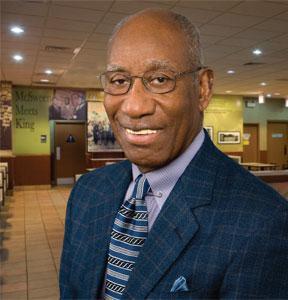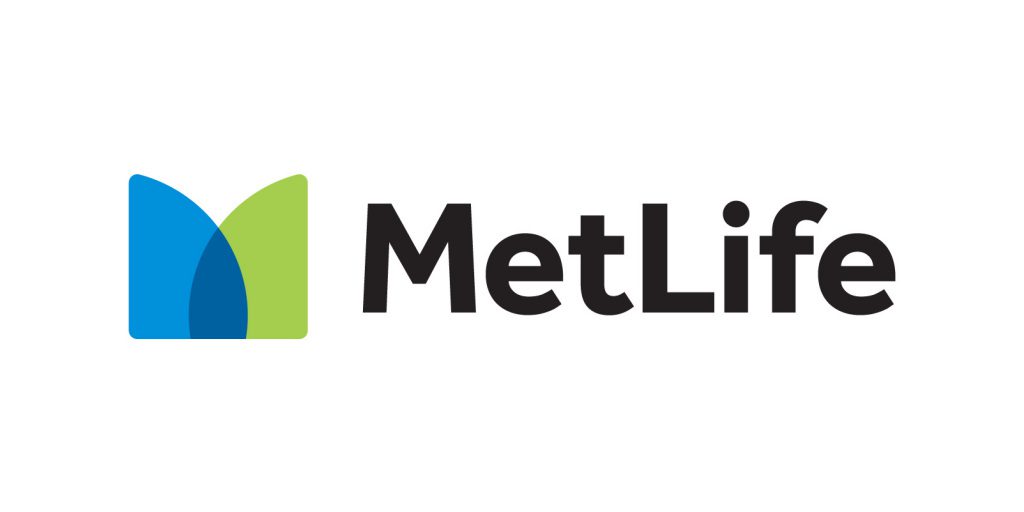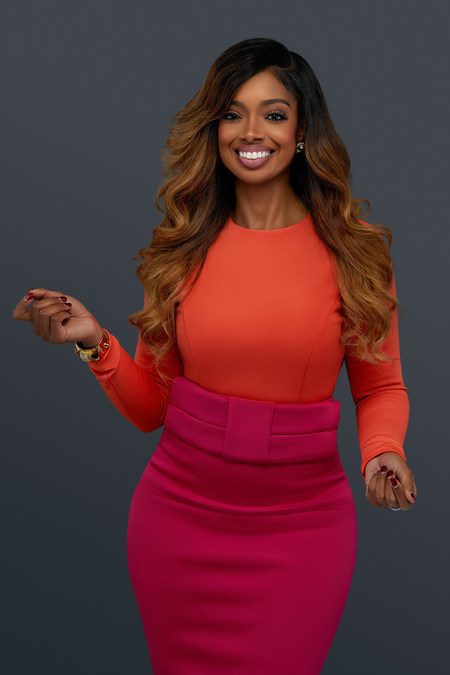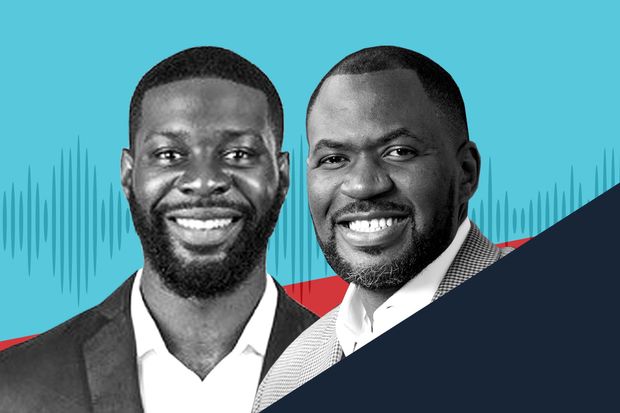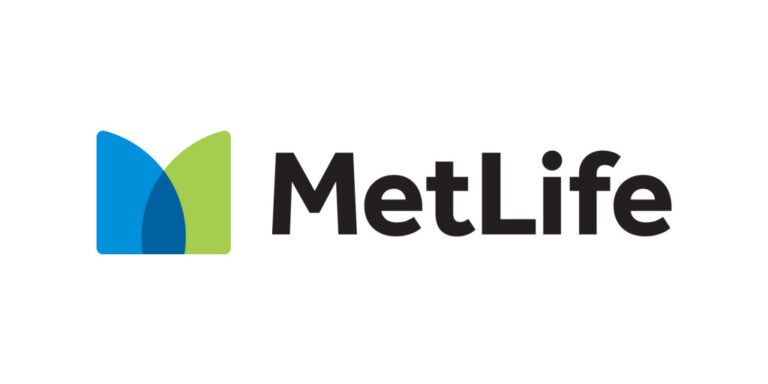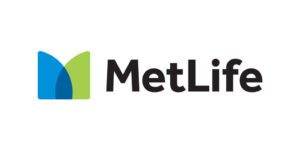Enter “wealth management” and “racial diversity” into a search engine and you’ll see several stories about how efforts to increase representation are falling short of goals. You’ll also see stories about firms launching initiatives and promising “to do better.” This narrative is hardly new.
What is new is that financial advisors Dasarte Yarnway and Emlen Miles-Mattingly chose action over waiting for big firms to do more and and recently launched the Onyx Advisor Network, a support platform designed to help underrepresented advisors.
In this podcast, they discuss their firm and describe what advisors are getting right, and more importantly, what they’re getting wrong when it comes to inclusivity.
You can also read the transcript below:
Greg: As we celebrate Black History Month, I’m incredibly pleased to have with us Dasarte and Emlen. Welcome, gentlemen.
Dasarte: Thank you so much for having us.
Emlen: Thanks for having us on.
Greg: My pleasure. Very much appreciate it. So, I have a lot of questions guys, but before we talk about your background, let’s talk big picture about where we are now in America in terms of wealth, race, opportunity, and access. Take it away.
Dasarte: Where are we now as it pertains to wealth in America? As you know, the wealth gap seems like it’s widening every day. Millions of Americans aren’t served because they are not “wealthy” by the metrics of what we consider wealthy. But I don’t think that that means that they shouldn’t have access to sound financial advice. When we think about it, how else are these people supposed to get out of their current situation to create generational wealth for themselves and for their family, whether born or unborn. This is one of the pivotal questions that Emlen and I asked ourselves as we matriculated to the financial services industry. Largely, when you’re at some of the larger firms, you find that your service is reserved to those who, let’s face it, have upwards of a million dollars in investable assets before you can really take them seriously and build a viable business.
I won’t speak for Emlen, but I often think that the people that need it the most aren’t in that category, right? So, wealth in our country today looks like it’s one sided. There is a 1% and 99% of folks are running the rat race, trying to catch up and trying to do the best that they can for their families. And this is something that hopefully with the help of organizations like Onyx, with the help of champions in certain institutions, and just a general concerted effort to change it, we can really experience some needed change in our industry and beyond. It’s funny that you asked a question about wealth and you mentioned Onyx. I was looking through some stats earlier today as I was on another call and 1,493 Black CFPs exist currently. That’s less than 2% of the total number of CFPs.
When we think about doctors, 2.6% of medical doctors are African American or identify as Black. Of the total number of people in medical schools, only 7.6% of those students currently enrolled identify as African American or Latino. When we talk about teachers 7.6% of teachers identify as African American, Latinx or Asian American. That’s less than one out of every 10 teachers. And then I was looking at the stats for tech professionals. Right under 1% of tech professionals are Black executives or middle management. So when you see these numbers across the board, I think one thing is true. There’s not enough representation. Obviously, there’s not enough diversity. I feel like if I was a young, underrepresented professional, I would think that I don’t belong. And there might not be space for me. So again, how can you strive for wealth when you’re not seeing it right in front of your face? But I’ll let Emlen chime in.
Emlen: I agree with 100% of what you’re saying. And when you think about Onyx and you think about the mission of what we’re trying to do, to change that, right? The mission is changing the complexion of wealth. And the question was, what’s the current state? And I said, I think it’s changing. I think that things are going to change. Dasarte gave some incredible stats about how much change needs to come. And I think it’s on the cusp. Those needs are why we created what we are creating. Because we know that we not only have to create something, we need more messengers.
There are a lot of people that need to get this message. There are a lot of people that need to have the advice, because we know that income is one of the leading indicators to create wealth. More minorities are graduating from college right now than ever before. And we know that they’re going to get into the workforce and they’re going to create wealth and they may have some windfalls. They may end up at a company that has a liquidity event. So, they’re going to need advice and they’re going to need sound advice from people that are qualified to give it to them. So, when you ask me what the state of the country is, I say it’s changing.
Greg: What you guys did that I find quite interesting is you didn’t just wait and hope. You said, ‘you know what, let’s make this happen.’ What was the pivotal point where you actually didn’t just talk about it, but decided to roll up your sleeves and go for it?
Emlen: It happened because of our relationship. We met in 2018. We actually went back and checked the date of our first conversation and how fitting it was on Independence Day. And then we launched something that’s gonna give advisors some independence. It started from there and the accountability that we created with each other.
Dasarte: One of the moments that I remember, and Emlen did mention Independence Day, but I remember in the thick of the pandemic there were so many advisors and 25 million new investors entered the market for the first time. In that same kind of season, we experienced a lot of traumatic events with the justice system. And there was the murder of George Floyd. Emlen and I were thinking, how can we be activists in our own way and create real lasting change? And I think from our position as financial advisors, we decided to impact the community around us through the work that we do in financial services.
And we went back to our genesis and what we did for each other was create a community that we could depend on. So we would share ideas, we would share struggles, pain points, dreams, and everything in between. Fears. We helped each other grow our business. We shared technology ideas. We started using the same custodian. We talked about compliance and we just continued to grow. Now we asked ourselves a pivotal question. ‘What if we were able to duplicate this blueprint for other advisors, just like us? Would that change the room? Would that change the industry? Would that change us?’ And I think as we began to lean into those questions, Onyx Advisor Network kind of birthed itself. So, we rolled the dice and here we are.
Greg: And you guys have a lot of noteworthy partners, including Vanguard, Altruist, and Envestnet MoneyGuide. Tell me a little more about the services you offer, in terms of the support, the platform, and whatnot.
Emlen: So, one of the things that we had in common was when you’re trying to start your firm, how do you start that? Compliance was one of those big hurdles. And so when we were thinking about how you start your firm, you’ve gotta get registered. You’ve gotta go through all those hoops. And when you say compliance every RIA here just kind of tightens up a little bit when they hear that. So, we wanted to be able to take care of that. So that was why one of our partners had to be a compliance partner. And we partnered with Synergy RIA Compliance Solutions because we wanted to be able to have the advisor do what they were good at, and that’s take care of the clients. And then the other thing is we need to have software to be able to do that and a custodian.
So, when we reached out to Altruist to do that Jason Wenk and the team were on board immediately. And so what we were trying to think is if we’re really trying to get advisors to get their businesses up and started, what would they need? What core tech would they need? And so we thought, you need to have some compliance. You need to have a custodian. You need to have financial planning software. You need to have data archiving. And so this is how this tech stack started to happen because Dasarte and I were bouncing ideas off of each other. What else would you say there, Dasarte?
Dasarte: I would say a lot. Let’s just lean into that because you said a lot of things. So, I talk a lot in my work with Altruist right now with Onyx about going independent with confidence. As you know, going independent is one of the most scary things for an advisor. Let’s look at the period that we’re in right now, when we had a pull back, or some people will say a correction. Imagine being on your own and not being able to circulate the wirehouse’s content that they’re generating that’s compliance approved, and just regurgitating that and information to the clients that might be ringing your phone, because they want to know if they will be okay. You’re on your own. You have to generate everything for yourself. These are your thoughts. These are your opinions. This is your portfolio construction. And you have to defend it. You have to uplift it and you have to keep your clients on track.
Greg: And you’re taking the risk too because you don’t have those boundaries handed to you either. You have to figure that out and be cognizant of it.
Dasarte: Exactly. So you’re assuming a lot of risk. So, as it pertained to our experience with building this, we wanted to make sure that the advisor had everything that they needed to go independent with the confidence that they would have if they were standing behind the desk at a wirehouse. So, like Emlen said, everything from the inception to the day to day operations of your firm, we’ve thought about in detail to make sure that that advisor has that confidence. He mentioned compliance. He mentioned custodian. Actually a lot of underrepresented advisors don’t even manage investments because to get a rep code at some of the biggest or well known custodians, you need over $10 million to $20 million in AUM (assets under management) to be able to do so. So we’ve been able to get around that through our partnership with Altruist. We got the two financial planning partners. Vanguard is making our portfolio. So, you can feel like I can do this and save money along the way because it’s not cheap to go independent. But we think that we’ve built an initial tech stack, which is gonna be followed by what we call a supplemental tech stack so advisors can really go independent with confidence and build their best practices.
Greg: Dasarte, earlier in your career my understanding is you didn’t have a large enough book when you started in your early twenties. And so there were these kinds of barriers to entry, if you will. Some structural hurdles. And it takes money to make money in a way. A lot of that is based on AUM. So the ticket entry is quite high, but you guys are democratizing wealth or at least access to wealth.
Dasarte: No, for sure. See, I don’t believe that you have to finish where you start. Just because you start with $5 million in AUM doesn’t mean you can’t have a book of business of $50 million in a few years. And I think that for a lot of folks, they don’t understand that. The advisor of tomorrow is growing right now. So when you look at the wirehouses that are neglecting this demographic of advisors, they’re almost doing a disservice to their business. These are going to be the same advisors that they’re gonna come and try to fish over to their brokerage or their house in three to five years. So we thought that it made sense to give our advisors access to do that because it does one of two things. It makes their business more viable and stable because they now have multiple income streams if they’re charging on financial advice or financial planning, plus investment management. And it allows their clients to build long-term multi-generational wealth. They have an advisor that can help them with this now. So we think that on both ends we’re making a deep impact with the advisor and with the communities that they serve.
Greg: And that should engender more loyalty, which will help build that generational wealth, presumably. I wanted to ask you guys, for people listening, what are some tangible steps that need to be done to help? And it’s not a secret that I think 70% of advisors are men and 80% are white. The industry is pretty darn white. What do you guys say? What’s being done right? And I know we’re generalizing, but what are some big picture, low hanging fruit things that you think like, ‘you guys can do this, it’s not impossible and you can actually make a positive change.’
Dasarte: In terms of what the industry is doing right, I think that the industry is really aware that there is a diversity and inclusion problem. And I think the first step of correcting anything—I call them development opportunities—is just being aware that it does exist. So, the industry is now more than ever aware that this is a true problem. I don’t know if you saw the CFP board’s latest announcement. Right?
Greg: I did.
Dasarte: In terms of just a number of African Americans and underrepresented advisors now entering the space, although that was marginal growth, they’re super aware about what is going to occur. And they’re even opening up the books and being transparent and saying that we will report these numbers more frequently so you can know where we are in terms of progress in our industry. That’s big. We know that this is a problem. So I think the industry is doing the right thing by now being intentional about diversity, inclusion, and belonging.
Greg: This is a good entry point to rattle off a few numbers for listeners. The number of CFP professionals last year rose overall 3.8% from 2020. Black CFP holders rose 10%. Hispanics rose 15%. The combined number of Black and Hispanic CFPs increased 13.8% last year, nearly quadruple the overall growth rate in CFP professionals. Women grew 4.2% in 2021, above the 3.1% growth from the previous year. So on that level, that’s all encouraging. Granted, the numbers are coming off small bases though. Females account for 23% of CFPs and are 51% of the population and 83% of CFPs are white. So it looks like there is progress, but it’s also going somewhat slowly. But I don’t know what your take is. That’s just my high level take on these numbers. I know that’s only part of the puzzle.
Dasarte: I think that progress does not have to mean perfection. And we are making progress. It’s gonna take a while before those numbers get to where we want to see them. But I do think that one of the purposes of Onyx is to just have our industry look more like our country. And if we are able and working towards that, I think we’ll be okay. Emlen, go ahead.
Emlen: I was thinking about this and I think it’s a representation thing. I think that people in the industry are seeing representation as something that needs to happen. And the more that we have more representation in the industry, like our country, as Dasarte alluded to, I think we’ll see these numbers change. I think the CFP board did something that was pretty phenomenal with the incoming chair.
I think now you see someone like that sitting in that position as a person of color, as a woman, you can look at that person and say, okay, yeah, maybe this is something that I can do because I think that for the industry to change, this has to become a viable career path for people. They have to be able to look at this and say, I see people in this industry that look like me. I see a space for me. And this is one of the things that Onyx wanted to do. But I think that it’s a collective thing with the industry. There are a lot of people in the industry that are trying to make this change and that’s encouraging.
Greg: And that’s Kamila Elliott who you are speaking about.
Emlen: Yes, exactly.
Greg: One of you guys mentioned in an interview that you can’t be what you can’t see. I think that’s especially interesting because you see that manifest itself not just in terms of identity and race. Think about niches. You have niche practices that cater to doctors or pilots, or what have you. But people like to see themselves. Women often like to work with female advisors, et cetera. So it also seems inevitable, if not logical, also on a business level, aside from being just and the right thing to do.
Dasarte: Can I tell you a story just on that a bit, Emlen, then I’ll get out of your way? I tell the story a lot about John Rogers and Ariel Investments. I remember I was 24 years old at the time of starting my firm or filing the paperwork at least back in 2015, opened our doors January 4th, 2016. And to find somebody that I looked up to and I was inspired by, I had to go back over 20 years to 1983 when John Rogers was on the cover of an investment magazine. I forget which one. He had an afro at the time. He had like these bell bottoms, a suit and he had his logo of a tortoise on that magazine cover. He was 24 at the time. And he started what we now know as Ariel Investments, which is a multi-billion dollar mutual fund firm. That means that this problem of representation has always existed in our space. And I think that we all now can touch and agree and know that it’s an issue. And that’s why I’m excited about change, because I think we’ve been saying it for so long as the minority, but when the minority and majority get together and agree that this is something that needs to change, I think you begin to see real growth.
Greg: And are you seeing it? Is it palpable? Are you feeling that? I mean, how would you characterize that?
Emlen: I would say by the number of emails that we get and the number of inboxes, DMs, that we’re getting from people telling us that they now want to come into the industry. We’ve had more calls with people that are wanting to come into the industry now because they feel like there’s a space being created for them. And it goes back to the representation, exactly what Dasarte was talking about.
I always bring up my kids in this because it really hit me when I’d seen this. My son loves Spider-Man. In the new Spider-Man (Spider-Man: No Way Home) it’s a little kid and he’s half Black and half Latino. My son looks at him and he says, ‘that’s me, that’s me.’ And I sat there and I looked at him and I was like, yeah. My wife is Latina and I was like you nailed that one. He’s two years old. And he said, that’s me. And now all he wants to wear is Spider-Man everything, right?
He is all into this. And I thought at this young age, at two years old, this child is seeing someone that he considers that looks like him, that he can be. And for the entire existence of the financial services industry, there’s been no one that looks like me and Dasarte and the people that we’re trying to get into the industry to be able to say at that young age, that I want to be like that. But we’re about to change that. We’re changing that now. That’s going to change. Now, they’re going to have someone, to where when they’re younger, they’ll begin to look at this as a career option. You know, Dasarte is an anomaly at 24 to start his own firm. But what happens when that’s the norm?
Greg: I think it’s so interesting. The profession is very much obviously thriving right now, and it’s very of the moment I think, and incredibly important, but most people, certainly up until somewhat recently, when they think about a career, it’s like, oh, I might be a doctor, a lawyer, or go into entertainment or whatever. But wealth management was kind of just not even something on the menu of career choices. It wasn’t really something that people would think about. And I think it’s very much more on the radar and starting to trickle down to more and more and to younger and younger people. And I think that’s really important, too, for the industry. We know how much there are succession issues, people are older so they need young blood anyway. But it’s encouraging and nice to see.
Dasarte: It is. Absolutely.
Greg: Dasarte, I read in a story where you talked about the push-pull mentality in terms of helping others. Can you elaborate on that?
Dasarte: That’s my favorite metaphor. My favorite. I think that if we live like this, we have an opportunity to see change in our society, in our industry, in our communities. And basically what the push-pull mentality means to me is that like where you sit from your current seat, you have a responsibility, almost an obligation to continue to cheer those that are doing great things that are excellent in their craft to be their best and to support them. Right? So you, you gotta push them ahead. I have to make sure that Emlen is his best self. And he’ll tell you sometimes it’s annoying. And for everybody that’s coming after me, so many young advisors are hungry for knowledge, hungry to serve their clients. I have to do my part in pulling them through the same doors and opportunities that I was privileged to have.
Once that door is kicked down, it’s like, come on, you could do it too. You can do more. So push-pool is an effort to make sure that everybody succeeds. I strongly believe in collaboration over competition. And that kind of mentality was really birthed from my engagement with Emlen early in our friendship because it was never like, there’s only enough for me. There’s only space for me here. It was more like pull up a chair so we can have a meal together. We can break bread and figure out how we can both win. So, I believe if you lead with that, if you lead with helping one another, if you continually support each other and make space in the room for people to have opportunities, it’s a win-win for everyone. And I think that’s one of the things that our partners do really well. They know that by diversifying the room our industry is better off. They know that. So when they come out and they extend gratitude to us for using their technology or their platform, they’re doing that as a bet on the future of our industry. And Onyx is just the vehicle in which we’ll be able to do that. But I think everybody wins long term.
Greg: Any other goals beyond what we discussed that you guys are hoping to accomplish? Obviously make money, build wealth, have more representation, anything else?
Emlen: Those are the goals. We want to teach advisors how to manage their assets. How to get to that first $10 million milestone. Dasarte and I talk about that. Once you hit that number things change for your business. And maybe one of the other custodians would let you on their platform at that point. But once we get to that first $10 million, I think that if we can get a hundred advisors to their first $10 million, that’s going to be one of the first milestones we can get. And we want to see a hundred advisors get to their first $10 million starting from scratch.
And we always say that starting from scratch, Dasarte and I talk about that all the time, it’s different when you start from nothing. And if we can get them there and then get 250 advisors to make that $250,000 number in revenue. Those are some of the goals. We want to be able to see that change for these advisors because we know what happens at that income level. We know what happens, when you get there and they’re gonna actually employ someone else and they’ve impacted at least 75 households in their respective community, giving them the financial advice that they need and building a profitable business. So, we’re teaching entrepreneurs how to run their practices. And so, it’s exciting. That’s the vision. One of the many.
Dasarte: I would love to see Onyx be responsible for over a billion dollars of AUM. And I think it’s gonna happen with all of the support and all the advisors waiting, chomping at the bit to get on the platform. I see that it’s more possible every day. I would love to do a web of how Onyx has impacted the financial landscape through partnerships with, say, BLX (BLatinX Internship Program) that we’re working on, partnerships with some of our custodians, partnerships with other groups to say these many kids are interns at some of the biggest minority-owned firms because they’re part of Onyx and really seeing how that’ll impact our space.
Greg: You guys put out a press release recently about what you’re doing with Future Proof. Can you speak briefly about that?
Dasarte: The good folks over at Advisor Circle and Josh Brown of Ritholtz Wealth Management, they’re having the Future Proof festival, which is going to be the biggest wealth festival ever. It’s going to be in September, down in Huntington Beach. And initially when we started the Onyx Advisor Network, we wanted to do a few different things. We wanted to have compliance solutions for our advisors. We all know that that’s one of the biggest pain points for independent advisors anywhere. Number two, we wanted to make sure that they had a custodian. Number three, we wanted to make sure that they had community and coaching. And we wanted to do our own conference at the time that we thought about the idea. Number four, the technology to drive their businesses on a day to day basis.
Now the community and coaching aspect we have part of Onyx is a backend kind of site. Think of it as a social media profile, exclusive for Onyx members, in which they can engage, go to our town halls, have our guests on the backend, talk to them, live streams, webinars from our product partners. That’s one part of the community, but we want to do an annual conference that allows these advisors to get together in one room. Fellowship. Share struggles, ambitions, so they’re seen, they’re heard, they’re known. And they don’t feel like they’re an anomaly anymore. And Advisor Circle is like, we have a microphone and we want to share it with you to be sure that these advisors are in spaces that they probably would never go. So, the press release that you saw is that partnership. And with everyone that uses an Onyx advisor code they’ll be able to buy one ticket and gift one to an underrepresented advisor to attend that conference. And I think that is going to be powerful because Emlen and I were just at a conference in Las Vegas. We were one of five black men there. Right? So as we looked around the room it wasn’t surprising to us because we’ve done it before, but it doesn’t have to remain that way. And I think that this is one step in the right direction of, again, changing the complexion of wealth, diversifying the room and everybody winning.
Greg: Excellent. Also as a long standing tradition in asking our guests for an actionable idea is there anything you guys can recommend that listeners can take away?
Emlen: One thing I always say is I’ve learned more probably in my career when I was being mentored and when I was mentoring someone and so mentorship is like a formal relationship. So establishing that mentor relationship, if I was gonna say something for advisors to do. I think that something happens to us as advisors when we are teaching someone what we think they should do and when someone’s teaching us what they’ve done. It’s almost exactly like the push-pull thing that Dasarte was talking about. It’s in the same vein as that. But when I look back over my career and the most growth that I’ve had, it’s when I’ve been able to be poured into by an advisor and then being able to give that immediately to someone else, because the best way to learn something is to teach it.
Dasarte: I would agree with that. That’s an excellent answer. I’ll say two things, one easy answer and one hard answer. So the easy answer, and the low hanging fruit, is to keep an eye out for talent that’s doing well. Some of the best people that I’m now connected with—Jason Wenk, James Werner—these people are white men and they came up to me and said, ‘I love when you do this. If there’s any way that I can support you, let me know.’ Keep an eye for talent and make it known that they’re doing good work within our space. That’s encouraging. That’s the push that they need, to take whatever you know they’re doing to the next level. And I think that affirmation helps anybody. Right? So keep an eye for talent, let them know that they are doing well and encourage them to continue to go forward.
The hard thing for me is the big decision. Stand up and speak out against, or for, diversity, inclusion, and belonging, especially if you’re a CEO at a company or you run a firm with more than 10, 20 employees. Make it a point to say, here, we are inclusive. Here, we are challenging the status quo. Here, everybody is welcome. And I think once you begin to do that the expectation is set that we don’t just because the industry is one way we don’t have to follow suit. So that’s the hard thing, to come out and say, this is how we operate. And I think a lot of the time, some founders, some employees might feel that way, but it’s never said. There’s never like a stake in the ground in terms of inclusivity. It doesn’t have to be a zero sum game. And again, everybody can prosper. So that’s one easy thing. One very hard thing that I challenge everybody to do as they walk away from this podcast.
Greg: And in terms of spotting talent, what does talent look like today? I mean, at different times in the business cycle or where the business is, different skills will be more valuable. So, are there any common traits or things that you guys really value and look for today in people?
Dasarte: For sure. I mean, you’re looking at two individuals that dare to dream. So, somebody who is talented is going to dare to dream. They’re going to amplify their own voice. They’re going to figure out ways to talk to their demographic. They’re gonna risk embarrassment a lot of the time, whether they’re showing themselves in the public sphere, on video, or via their blog that they’re writing or their tweets that they’re circulating around because they want to do better for themselves and for their clients. Talent is working both quietly and loudly because they understand that these actions not only will carry them to the next level, but they’ll inspire somebody that’s coming behind them.
Emlen: I got something to say about talent. If you build a space for the talent, it will come. And what I mean by that is this. We built the BLX program. We co-founded the BLX program with three other co-founders. We built this space where we could have Black and Latinx advisors come into the space and come into our internships. We had 38 interns in our first year. Twenty of them got hired. The only reason the others didn’t get hired is because they had to go back to school. So, what we heard overwhelmingly was how talented, how rich the talent pool was. These are people that normally wouldn’t even get looked at, but because they came through this program, because we made a space for them, the talent will come. The talent is there. It’s not a talent issue. It’s a space problem. It’s a representation problem. It’s a where can I fit in place? The other day I talked to a mechanical engineer woman that said she wanted to get into this field. They want to come into this field. People want to get into this industry. People want to do what we do. We just have to create the space for them to do it.
Greg: Tell me how technology plays a role. I mean, the internet’s got to change so much, if not everything on this level, right? It’s like this great leveler where everyone can communicate.There’s this hyperawareness. Can you speak to that a little in terms of how this turbocharges the process?
Dasarte: Absolutely. The world is flat now, right? So you can be working in California but employ somebody in Austin that specializes in equity compensation because they’re around a lot of the tech companies that are moving that way. So the world is flat. So, when it comes to talent, there’s really no excuse to find some of the best in the business that can help prepare or propel your business to the next level. The world is flat. You can find people. I’ve been blessed enough to talk to some people that I never thought that I was gonna meet because of this thing called the internet and social media. So I think that that changes the game. And if you add a layer on top of that, what’s happened with the pandemic is we’ve seen that you can really be location independent and still do well. So I think the time is changing. I think the opportunity now is greater than ever to create impact to diversify the room and to work with some of the better in the business.
Greg: Excellent. Well, thank you guys. Really appreciate it.
Dasarte: Thank you so much.
Greg: Thank you. My guests have been Dasarte Yarnway and Emlen Miles-Mattingly. For more advisor specific podcasts, please check out Barrons.com/podcasts. For The Way Forward, I’m Greg Bartalos.


